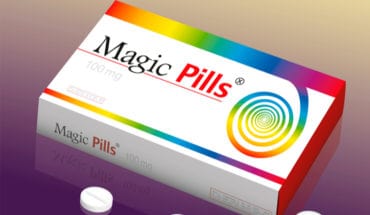Adults who have never had allergies can suddenly develop asthma, eczema of food allergies long after they have left childhood behind. ‘Although most people develop allergies when they are children, a small number can find themselves sensitized to allergens like pollen, foods or house dust mites when their immune systems have already fully matured,’ explains Dr Adrian Morris, an allergy specialist at the Surrey Allergy Clinic.
No one knows exactly how many adults develop allergies for the first time, but UK population studies of adult onset asthma suggest that there are around 4.6 women in 1000 who develop the respiratory condition in adulthood and 3.6 males in every 1000. The trend increases with advancing age.
Common triggers include flu, colds or other viral infections, depression or anxiety, regular exposure to irritants such as cigarette smoke, perfumes and chemical fumes and some medicines.
Common triggers include flu, colds or other viral infections, depression or anxiety, regular exposure to irritants such as cigarette smoke, perfumes and chemical fumes and some medicines.
According to studies, paracetamol may be linked to the development of asthma in adulthood and asthma can make existing asthma worse. ‘Drugs known as proton-pump inhibitors which are used to relieve acid reflux by neutralising acid in the stomach reduce the ability of stomach acid to break down proteins in food, which then pass through into the gut without being digested and cause reactions,’ explains Dr Morris.
But hormonal disruption is another common risk factor. Women going through the menopause are more likely to develop adult onset asthma and pregnancy may leave a woman with a lifelong sensitivity to certain allergens. ‘Pregnancy itself seems to be a catalyst for switching the response of the immune system,’ says Dr Morris. ‘We don’t understand exactly what the mechanism is but many women develop life-long allergies after conception.’
Remedies
Anti-histamines are readily available and can be bought OTC without a prescription. ‘There are a number of different types of anti-histamines; some have been used for many years, some are improvements on old drugs, and new anti-histamines are being developed all the time,’ says Dr Morris.
People suffering from eczema can use emollient lotions and creams to moisturise their dry skin. ‘Some emollients may also contain slight amounts of antibacterial chemicals to reduce the risk of infection or steroids, which can reduce inflammation.’
Immunotherapy, often referred to as desensitisation, can help reduce the symptoms of allergy, particularly those caused by insect bites or allergic rhinitis, and in some cases, prevent them altogether. ‘Immunotherapy is a well-established treatment for certain severe allergies,’ explains Dr Morris. ‘Patients are given gradually increasing doses of allergen extracts over a period of time, even years and this can result in them developing a tolerance.’
Recent research suggests that one in ten of the UK population use some form of alternative or complementary remedy. According to Dr Morris: ‘This may be an option for some but it a matter of personal choice. Some people with allergic illness will have used or considered alternative treatments but evidence for whether they work is purely anecdotal.’
- Biden Declines Second Term: Health Concerns - 23rd July 2024
- New catheter coating stops bacteria cells from swarming - 10th June 2024
- AI-designed catheters could dramatically reduce urinary tract infections - 10th June 2024








Yes, because your body changes when you get older so I think one should go see a special doctor see if you are allergic or try allergy meds. Because one can develop allergies at almost any age. That’s the problem with allergies, one can be exposed to something for years and then over time develop an allergy to it.